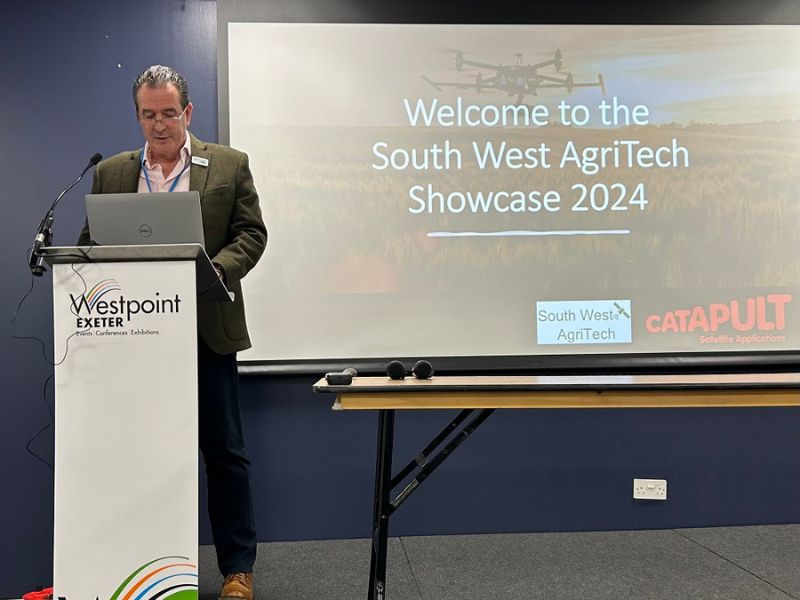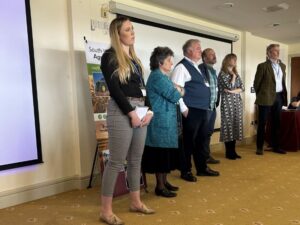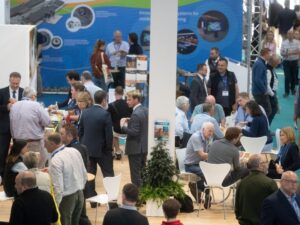Agri-tech is essential for food security and sustainability, according to speakers at the recent South West AgriTech Showcase, which attracted over 140 attendees.
“A world where we will always be able to source food from around the world to meet our needs with Deliveroo or Just Eat has been shattered,” said Karl Tucker, chair of the Great South West Partnership.
“Russia’s invasion of Ukraine; the conflicts in Gaza, Sudan and Haiti; Donald Trump; Covid; the impact of climate change and adverse weather patterns; along with many other factors, are making our politicians wake up to the real world we’re now living in.”
And this is where agri-tech can present an opportunity. “Agri-tech, in its widest sense, is essential to help drive innovation and performance, both in agriculture and in the wider food supply chain,” said Mr Tucker.
“Innovations like automation, the use of satellites, data analytics, artificial intelligence, machine learning and soil testing all help to improve performance in terms of efficiency, productivity, yield, waste reduction, reducing chemical use, improving biodiversity and sequestering carbon.”
One of the challenges is the commercialisation and adoption of agri-tech, which was the theme of the event. “Agri-tech itself has existed in bubbles; it’s been close to academia or science but it hasn’t fixed the problems that farmers and the industry face,” said Phil Bicknell, CEO at the Agri-Tech Centres.
“Focusing on the problem we’re trying to fix much earlier; the viability and the feasibility of technologies will help us effectively accelerate businesses through that growth – taking great ideas, helping them scale up and ultimately roll out.”
And this is something that the Satellite Applications Catapult (SAC) works to address. “There is a gap between the private sector, the innovators, entrepreneurs, and the end users – so what we’re trying to build a bridge between them,” explained Joel Freedman, head of innovation services at SAC, which was the principal sponsor of the event.
And from this came the Environmental Space Living Lab (ESLL). “Ultimately it’s a place where innovators can test out products and services in the real world,” he said. “There are facilities available for businesses and end users who are looking to understand more about the technologies and get support in developing them.”
The event brought together people from across the agri-tech industry, to showcase technology which could be used to increase productivity and sustainability. “We realised that sustainability and food security are important in the current environment – which is challenging both physically, economically and politically,” said Joanna Rufus, chair of South West AgriTech.
“The event was a fantastic success, with a sold-out marketplace showcasing the latest innovations, and a jam-packed agenda which prompted plenty of discussion between speakers and attendees. We look forward to the continuing success of the event.”






